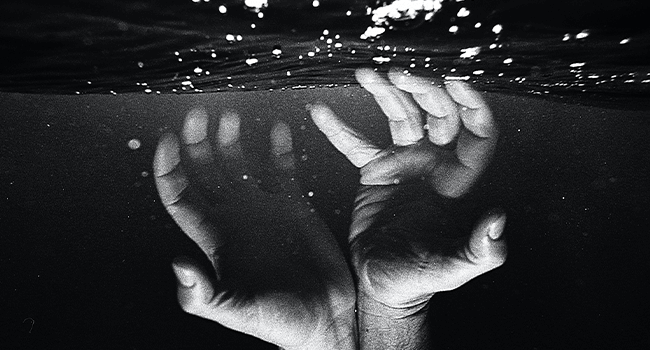Have you ever felt extreme anxiety when thinking about death?
The fear of dying is inherent in all living beings. We exhibit a natural “fight or flight” response when exposed to a life-threatening situation. However, for some people, the fear of death is so strong that it significantly affects their daily lives, escalating into a full-blown phobia known as thanatophobia or death anxiety.
This phobia can cause a sense of powerlessness, loneliness, and meaninglessness, sometimes seriously undermining the experience of happiness or peace. If it brings significant distress, it’s essential to reach out to a healthcare provider for treatment.
What Is Thanatophobia?
The term thanatophobia is derived from the Greek words “thanatos” (death) and “phobos” (fear). It is a type of anxiety characterized by an intense fear of dying or dying process. Thanatophobia is not a distinct disorder; instead, it frequently emerges as a symptom of various mental health disorders, with different levels of intensity. These include depression, post-traumatic stress disorder (PTSD), panic disorder, obsessive-compulsive disorder (OCD), illness anxiety disorder, and generalized anxiety disorder.
Some people who think they are afraid of death do not fear death itself. They are more fearful of the circumstances that frequently surround the act of dying. They may be fearful of crippling pain, incapacitating illness, or even the loss of dignity that comes with it.
Thanatophobia vs Necrophobia
Thanatophobia is different from necrophobia. Necrophobia is a broader fear of dead things or things associated with death, like coffins, tombstones, and graveyards. Unlike thanatophobia, it is not concerned with just the end of one’s own life. Those with necrophobia avoid situations involving their fears, such as funerals, and even discussing or encountering corpses can be terrifying.
Symptoms of Thanatophobia
Thanatophobia is a specific phobia categorized under anxiety disorders. It causes intense fear, anxiety, and panic attacks when thinking about the inevitability of death and concerns about separation or loss.
While thanatophobia is not explicitly listed in the Diagnostic and Statistical Manual of Mental Disorders, there are still particular diagnostic criteria used to examine the fear of death and its intensity:
- Marked fear or anxiety about death.
- Excessive worry of death or dying that disrupts everyday life.
- Avoidance of death-related situations.
- Immediate fear and intense anxiety when confronted with thoughts about death or dying.
Like any other anxiety disorder, thanatophobia can also cause physical symptoms whenever a person thinks about death. Physical thanatophobia symptoms that may include:
- Sweating
- Shortness of breath
- Racing heart
- Nausea
- Headache
- Fatigue
- Insomnia
Death Anxiety Scale
The death anxiety scale, developed by
In addition to tests, a diagnosis involves:
- Evaluating whether the fear of death is persistent and lasts longer than six months
- Assessing the appropriateness of these feelings within the individual’s context.
After thorough evaluation and diagnosis, a healthcare provider prescribes the appropriate course of treatment.
What Causes Fear of Death?
Death anxiety is not inherently maladaptive. Its purpose is to reduce the risk of being involved in dangerous situations. However, an extreme level of death anxiety can lead to problems in different areas of life.
Thanatophobia doesn’t emerge in isolation, instead, it is developed by a combination of biological, environmental, and psychological factors. While the specific causes can vary from person to person, there are common risk factors associated with other anxiety disorders. They can also make you susceptible to thanatophobia. The most common ones are listed below.
Biological Factors
- Genetics can make you more vulnerable to certain conditions, especially when combined with environmental factors. Your genetic code can influence how your body and brain function.
- Some researchers propose that the fear of death might have evolved as an adaptive trait to avoid harm or danger across generations.
Environmental Factors
Thanatophobia may develop due to various environmental factors and life experiences that can make a person highly sensitive to little dangers of life. These may include the following:
- Cultural and religious beliefs are linked to extreme fear of death. Religious beliefs can provide comfort to one’s fear of mortality by addressing the unknown, but personalized beliefs may require spiritual counseling alongside mental health support.
- The loss of a loved one, a parent, or a close friend, as well as separation or divorce, can trigger or worsen thanatophobia by increasing awareness of mortality through grief and loss.
- Thanatophobia varies with age. Older individuals may fear the dying process, while younger people fear death itself. Children of elderly people may fear their parents’ death.
- Exposure to media content, including news reports, can influence perceptions of mortality.
Psychological Factors
- Early traumatic events related to death can disrupt psychological well-being, potentially leading to thanatophobia by triggering latent death anxiety.
- Existential concerns center on contemplating life’s meaning and the unknown aspects of death, leading to anxiety.
- Mental health conditions such as generalized anxiety disorder, panic disorder, and obsessive-compulsive disorder can significantly impact psychological distress and exacerbate thanatophobia.
- People with poor skills for coping with stress, anxiety, or existential concerns may be at higher risk for thanatophobia.
What Thanatophobia Can Lead To?
Being scared of death and having random thoughts about it is normal. Still, it becomes a problem when it interferes with daily life—working, traveling, or seeing friends. The constant fear of death can be detrimental to mental and physical health in the following ways:
- When individuals grapple with death anxiety, they often adopt defensive behaviors, potentially harming their communication.
- Chronic worry and emotional stress, often linked to death anxiety, can lead to various health issues impacting
overall quality of life[2] . - Excessive anxiety from thantophobia can trigger
mental health conditions[3] including anxiety disorders, post-traumatic stress disorder, obsessive-compulsive disorder, depression, and eating disorders.
How to Treat Thanatophobia?
Thanatophobia treatment is similar to the treatment for specific phobias and other anxiety disorders. It includes psychotherapies and, if deemed appropriate by a healthcare professional, medications.
Psychotherapy
Psychotherapy, or talk therapy, helps you talk out your anxieties or fears with a professional. Consulting with a professional can help you find out the underlying cause behind your fear of death and ultimately come up with strategies to cope with anxiety in a better way. Sometimes, just talking out your inner worries lifts your burden and makes you feel better.
- Cognitive-behavioral Therapy (CBT): It is one of the most commonly employed therapies for addressing the fear of death.
CBT[4] helps by identifying and modifying irrational beliefs and thought patterns, reframing the fears associated with death, and ultimately reducing anxiety and distress. - Exposure Therapy: It is an
effective approach[5] for phobias like fear of death. The idea is that the more you gradually expose yourself to the feared stimulus, the less afraid of it you will become. Imaginal exposure involves writing vivid accounts of feared scenarios, while in-vivo exposure therapy includes normalizing death through various activities like visiting cemeteries, reading obituaries, and writing wills. This approach helps reduce intense death-related anxiety.
Medications
If psychotherapy doesn’t help a person overcome their anxiety, medication may be added to the treatment regimen. However, medications are mostly recommended on a short-term basis to relieve the anxiety symptoms associated with phobia. Often, medicines are most effective when used alongside talk therapy because working through the constant fear of dying in therapy is more likely to provide long-term relief. Medications for severe thanatophobia include anti-anxiety medication like beta-blockers or antidepressants.
Self-help Techniques
Coping with thanatophobia can be challenging. The unknown and inevitable aspect of death can be overwhelming, leading to anxiety and distress. Following are some effective coping strategies and techniques that can help individuals manage and overcome this debilitating fear:
- Limit Exposure to Triggers: Reduce your exposure to death-related content that may trigger your fear. Instead, opt for more comforting and soothing content.
- Focus on Living: When the fear of death strikes, shift your focus to living joyfully. Do things that make you happy, live in each moment, and enjoy it to the fullest.
- Understand and Accept Death: Death is a natural part of life, and realizing this can ease fear. Everyone eventually faces it, so worrying doesn’t take it away; it only brings it closer.
- Maintain a Healthy Lifestyle: Engage in regular physical activity, maintain a balanced diet, and ensure you get sufficient sleep. This will help in lowering anxiety and enhancing your mental health and well-being.
- Relaxation Techniques: Try to make relaxation techniques, such as deep breathing exercises and muscle relaxation, a part of your daily routine. They alleviate anxiety, enhance focus on positive aspects, and can help manage death anxiety.
- Join a Support Group: Seek out or join support groups for individuals dealing with thanatophobia. Sharing experiences can be comforting.
Summing Up
The fear of death has a profound impact on the human experience and can stop a person from achieving their purpose. Our fear of death is so strong that we hide this knowledge deep inside us, and it might affect how we see and act in the world. But many strategies can help you overcome thanatophobia and lead a fulfilling life. If you’re struggling with death-related fears, don’t hesitate to reach out to MEDvidi for a consultation.
Frequently Asked Questions
How does thanatophobia start?
Thanatophobia can develop for various reasons. Potential triggers include the sudden loss of a loved one or a near-death experience, prolonged contemplation of life’s meaning and the unknown aspects of death, exposure to death-related media content, chronic life-threatening illnesses, aging, and mental health disorders like depression. These factors can contribute to the development of anxiety and a fear of death.
How do I stop thinking about death every day?
If you find yourself constantly fearing death, consider trying positive affirmations and cultivating gratitude to counter these negative thought patterns. Mindfulness techniques can assist in anchoring your focus to the present, alleviating anxiety. Avoid exposure to potential triggers for these thoughts, and divert your attention by engaging in constructive hobbies and activities. In case things are getting harder, it’s advisable to seek guidance from a mental health professional who can recommend therapy or medication tailored to your specific needs.
Is OCD related to fear of death?
Fear of death co-occurring with OCD is marked by relentless and intrusive thoughts and anxieties connected to death or the fear of dying. A person may struggle with obsessive concerns about either their own death or that of their loved ones, resulting in extreme anxiety. To manage excessive fear, they might resort to compulsive actions and rituals, such as seeking reassurance or avoiding death-related situations. OCD co-occurring with a fear of death can have a substantial impact on one’s daily life and overall well-being, requiring professional treatment.








